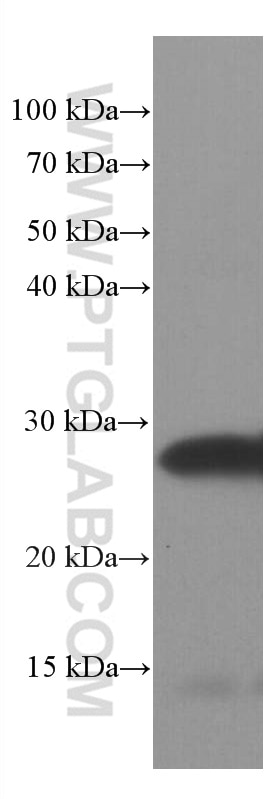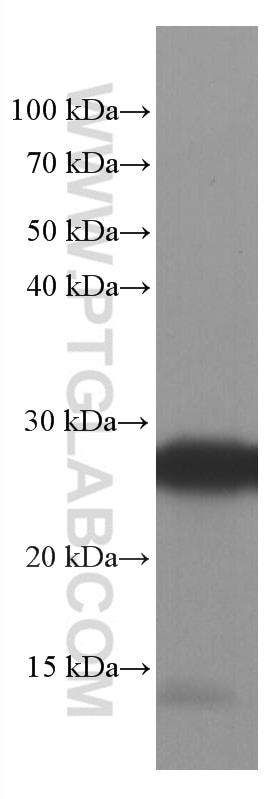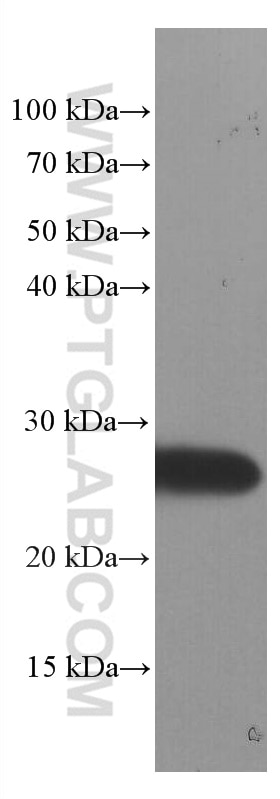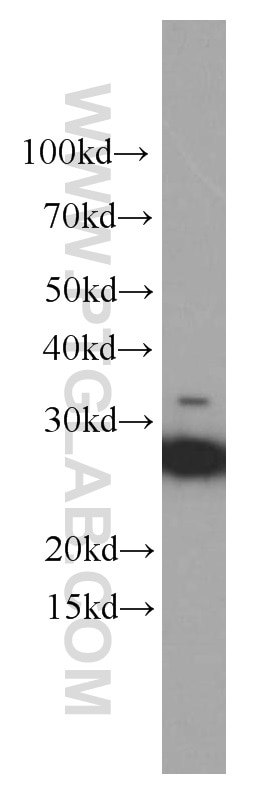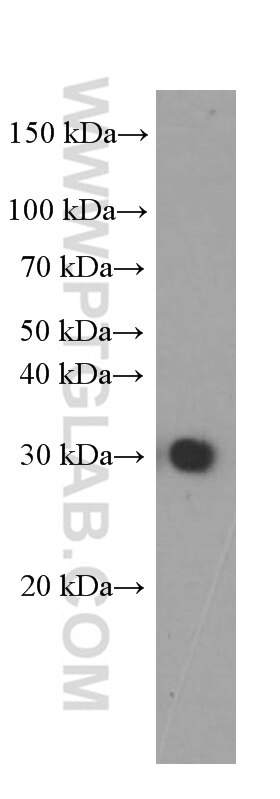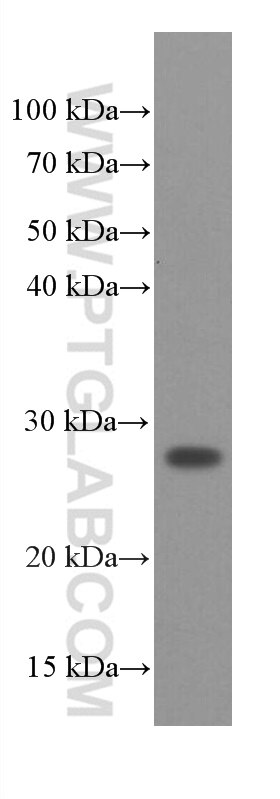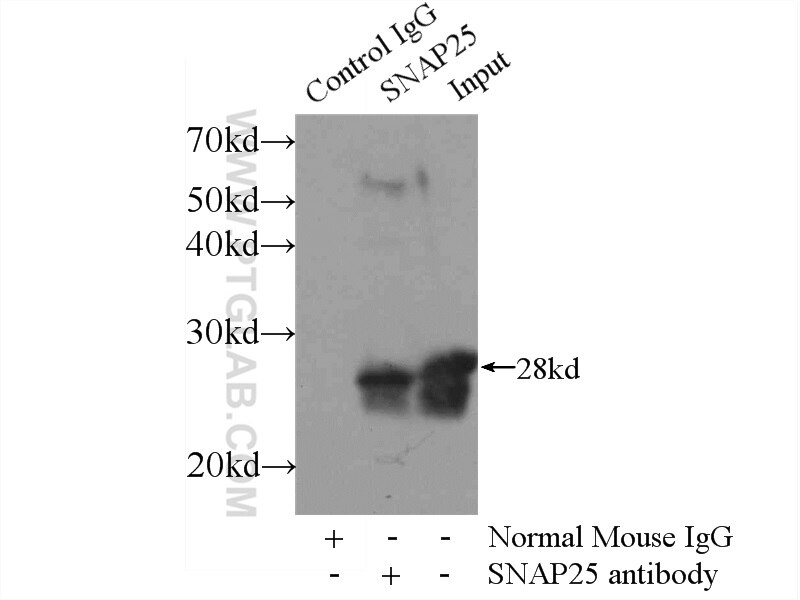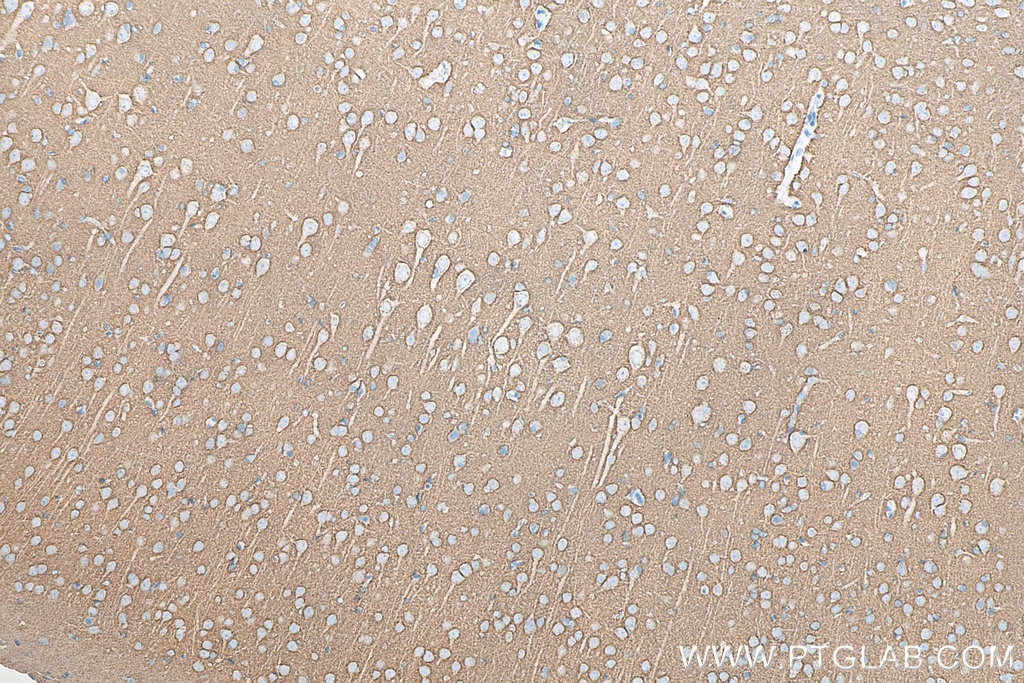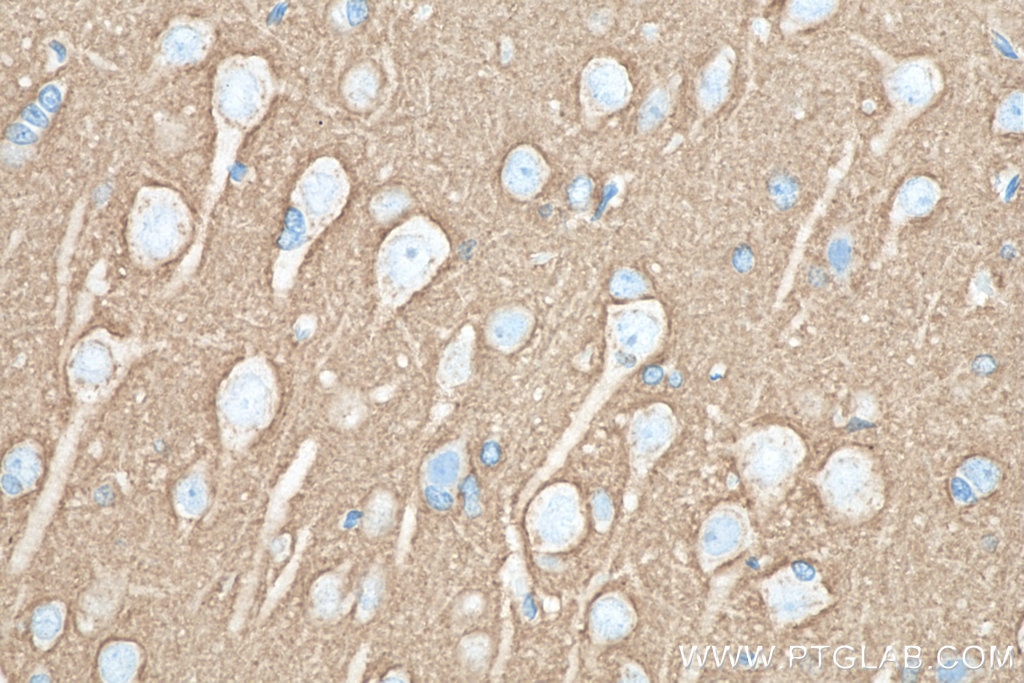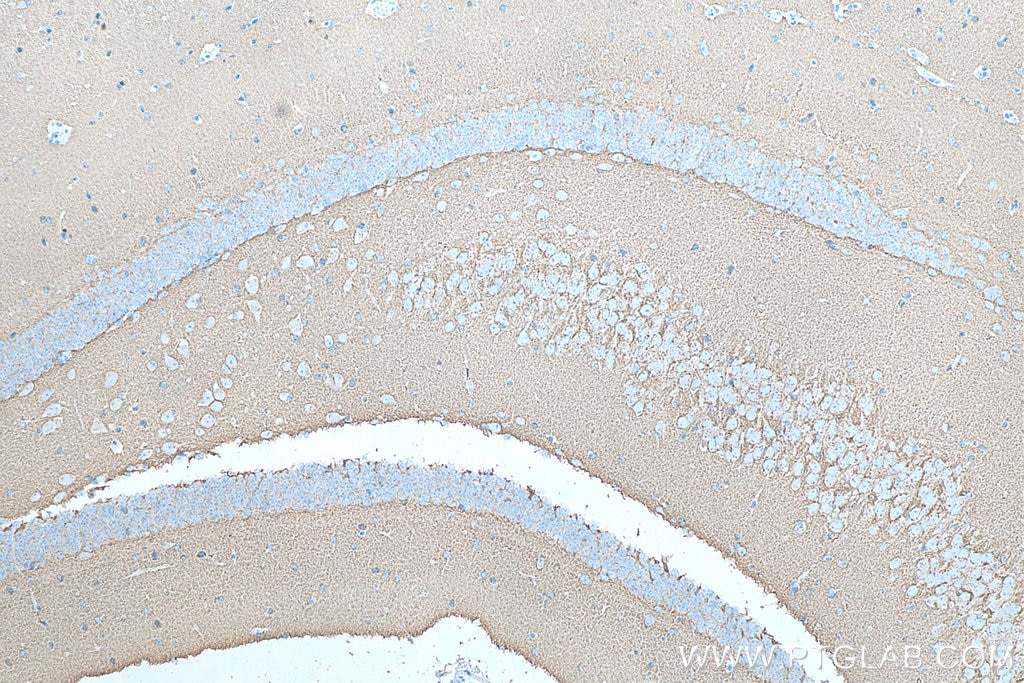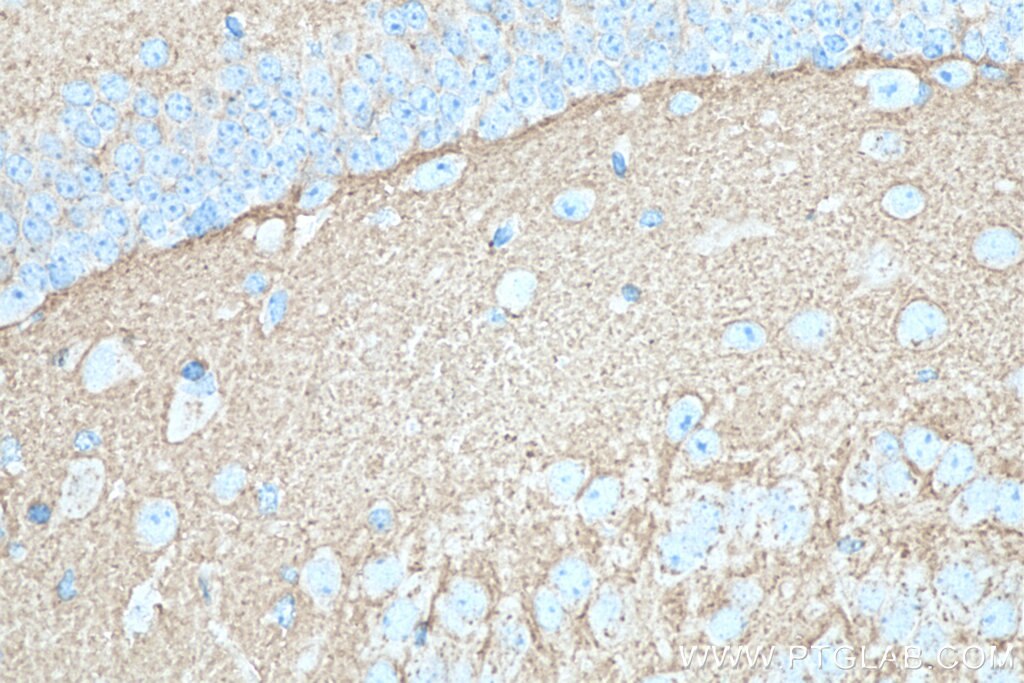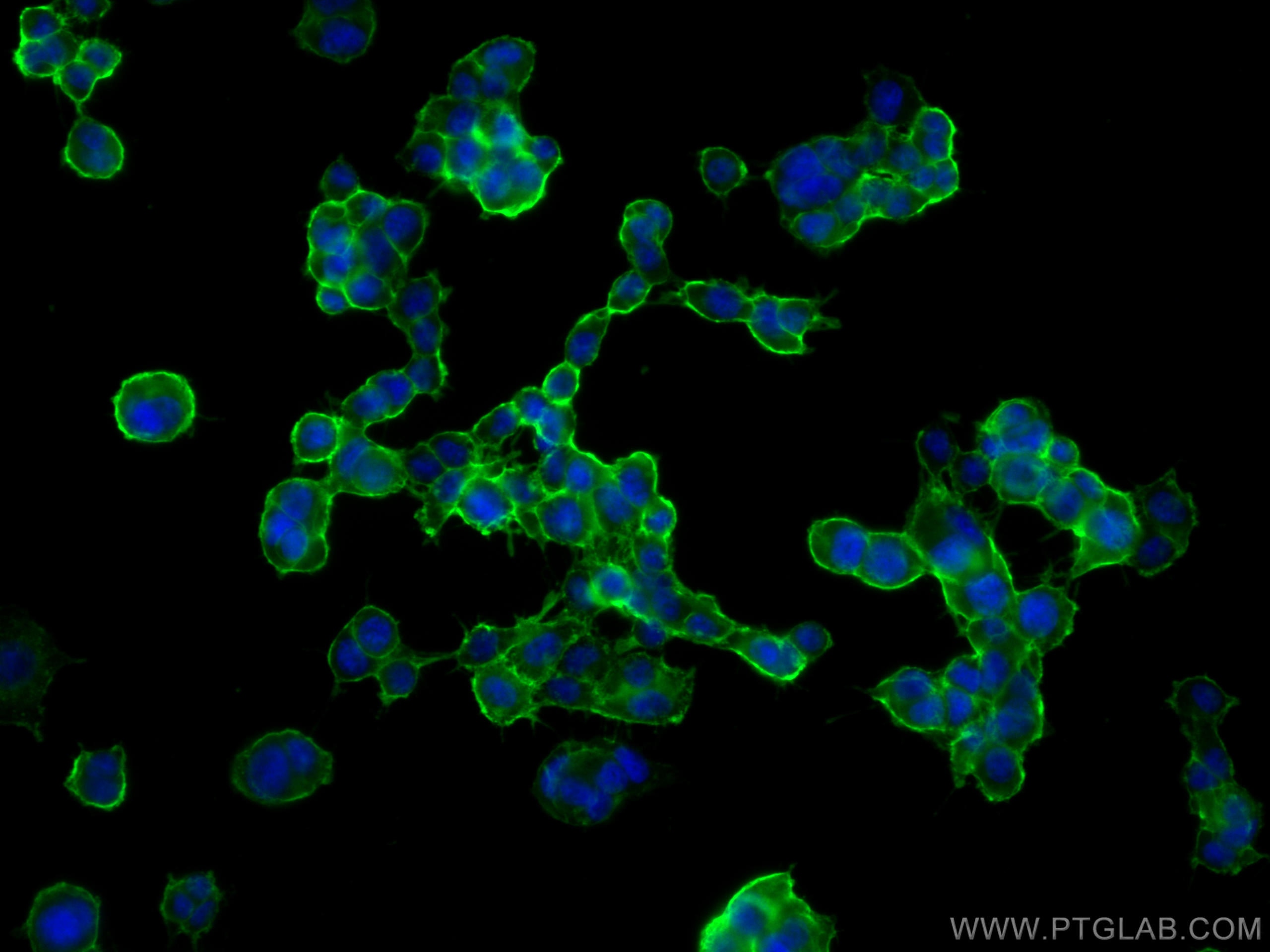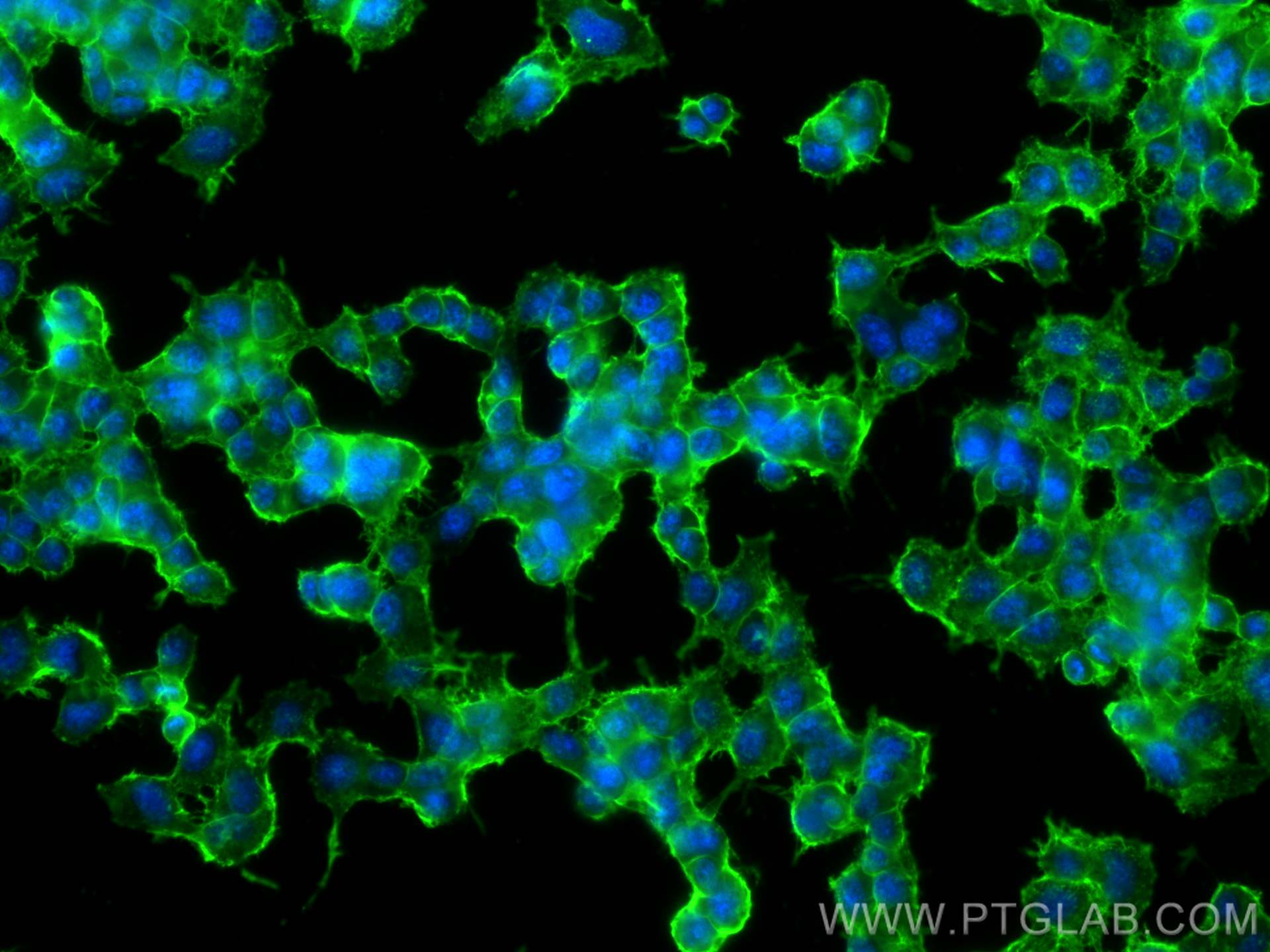Tested Applications
| Positive WB detected in | pig brain tissue, fetal human brain tissue, PC-12 cells, HEK-293 cells, rat brain tissue, mouse brain tissue |
| Positive IP detected in | mouse brain tissue |
| Positive IHC detected in | rat brain tissue, mouse brain tissue Note: suggested antigen retrieval with TE buffer pH 9.0; (*) Alternatively, antigen retrieval may be performed with citrate buffer pH 6.0 |
| Positive IF/ICC detected in | PC-12 cells |
Recommended dilution
| Application | Dilution |
|---|---|
| Western Blot (WB) | WB : 1:5000-1:20000 |
| Immunoprecipitation (IP) | IP : 0.5-4.0 ug for 1.0-3.0 mg of total protein lysate |
| Immunohistochemistry (IHC) | IHC : 1:1000-1:4000 |
| Immunofluorescence (IF)/ICC | IF/ICC : 1:200-1:800 |
| It is recommended that this reagent should be titrated in each testing system to obtain optimal results. | |
| Sample-dependent, Check data in validation data gallery. | |
Published Applications
| WB | See 10 publications below |
| IHC | See 1 publications below |
| IF | See 4 publications below |
Product Information
60159-1-Ig targets SNAP25 in WB, IHC, IF/ICC, IP, ELISA applications and shows reactivity with human, mouse, rat, pig samples.
| Tested Reactivity | human, mouse, rat, pig |
| Cited Reactivity | human, mouse, rat, chicken |
| Host / Isotype | Mouse / IgG2b |
| Class | Monoclonal |
| Type | Antibody |
| Immunogen |
CatNo: Ag6695 Product name: Recombinant human SNAP protein Source: e coli.-derived, PGEX-4T Tag: GST Domain: 1-206 aa of BC010647 Sequence: MAEDADMRNELEEMQRRADQLADESLESTRRMLQLVEESKDAGIRTLVMLDEQGEQLDRVEEGMNHINQDMKEAEKNLKDLGKCCGLFICPCNKLKSSDAYKKAWGNNQDGVVASQPARVVDEREQMAISGGFIRRVTNDARENEMDENLEQVSGIIGNLRHMALDMGNEIDTQNRQIDRIMEKADSNKTRIDEANQRATKMLGSG Predict reactive species |
| Full Name | synaptosomal-associated protein, 25kDa |
| Calculated Molecular Weight | 23 kDa |
| Observed Molecular Weight | 25-30 kDa |
| GenBank Accession Number | BC010647 |
| Gene Symbol | SNAP25 |
| Gene ID (NCBI) | 6616 |
| RRID | AB_10666318 |
| Conjugate | Unconjugated |
| Form | Liquid |
| Purification Method | Protein A purification |
| UNIPROT ID | P60880 |
| Storage Buffer | PBS with 0.02% sodium azide and 50% glycerol, pH 7.3. |
| Storage Conditions | Store at -20°C. Stable for one year after shipment. Aliquoting is unnecessary for -20oC storage. 20ul sizes contain 0.1% BSA. |
Background Information
The synaptosomal associated protein of 25 kD (SNAP-25) was first identified as a major synaptic protein by Wilson and colleagues. The protein interacts with syntaxin and synaptobrevin through its N-terminal and C-terminal -helical domains. Its palmitoylation domain is located in the middle of the molecule that contains four cysteine residues. Mutation of the cysteines abolishes palmitoylation and membrane binding. Several elegant studies using synaptosome preparations and permeabilized PC12 cells have suggested that SNAP-25 may act in the late post-docking steps of exocytosis. By limited proteolysis and in vitro binding assay, it is proposed that the two helix domains act independently and contribute equally to form the SNARE complex with syntaxin and synaptobrevin. It seems that a major regulatory element is located in the C-terminus of SNAP-25. Removing a 9 amino acid sequence of SNAP-25 inhibited neurosecretion in chromaffin cells.
Protocols
| Product Specific Protocols | |
|---|---|
| IF protocol for SNAP25 antibody 60159-1-Ig | Download protocol |
| IHC protocol for SNAP25 antibody 60159-1-Ig | Download protocol |
| IP protocol for SNAP25 antibody 60159-1-Ig | Download protocol |
| WB protocol for SNAP25 antibody 60159-1-Ig | Download protocol |
| Standard Protocols | |
|---|---|
| Click here to view our Standard Protocols |
Publications
| Species | Application | Title |
|---|---|---|
Adv Mater Noninvasive Optogenetics Realized by iPSC-Derived Tentacled Carrier in Alzheimer's Disease Treatment | ||
J Extracell Vesicles Identification of the SNARE complex that mediates the fusion of multivesicular bodies with the plasma membrane in exosome secretion | ||
Neuropsychopharmacology Autism risk gene KMT5B deficiency in prefrontal cortex induces synaptic dysfunction and social deficits via alterations of DNA repair and gene transcription. | ||
Biochim Biophys Acta Mol Basis Dis Mice with the Rab10 T73V mutation exhibit anxiety-like behavior and alteration of neuronal functions in the striatum | ||
Neuroscience SNAP25/syntaxin4/VAMP2/Munc18-1 Complexes in Spinal Dorsal Horn Contributed to Inflammatory Pain. | ||
Brain Commun Transcriptomic analysis of human brains with Alzheimer's disease reveals the altered expression of synaptic genes linked to cognitive deficits. |
Reviews
The reviews below have been submitted by verified Proteintech customers who received an incentive for providing their feedback.
FH Gaurav (Verified Customer) (08-26-2025) | I found the Proteintech SNAP25 antibody to be highly specific and reliable. The antibody gave a strong and clean signal with minimal background, making it very effective for Western blot experiments. Its high titer ensures good sensitivity, and I was able to obtain consistent results across different neuronal samples. Overall, it is a dependable antibody that I would recommend for SNAP25 detection.
|

